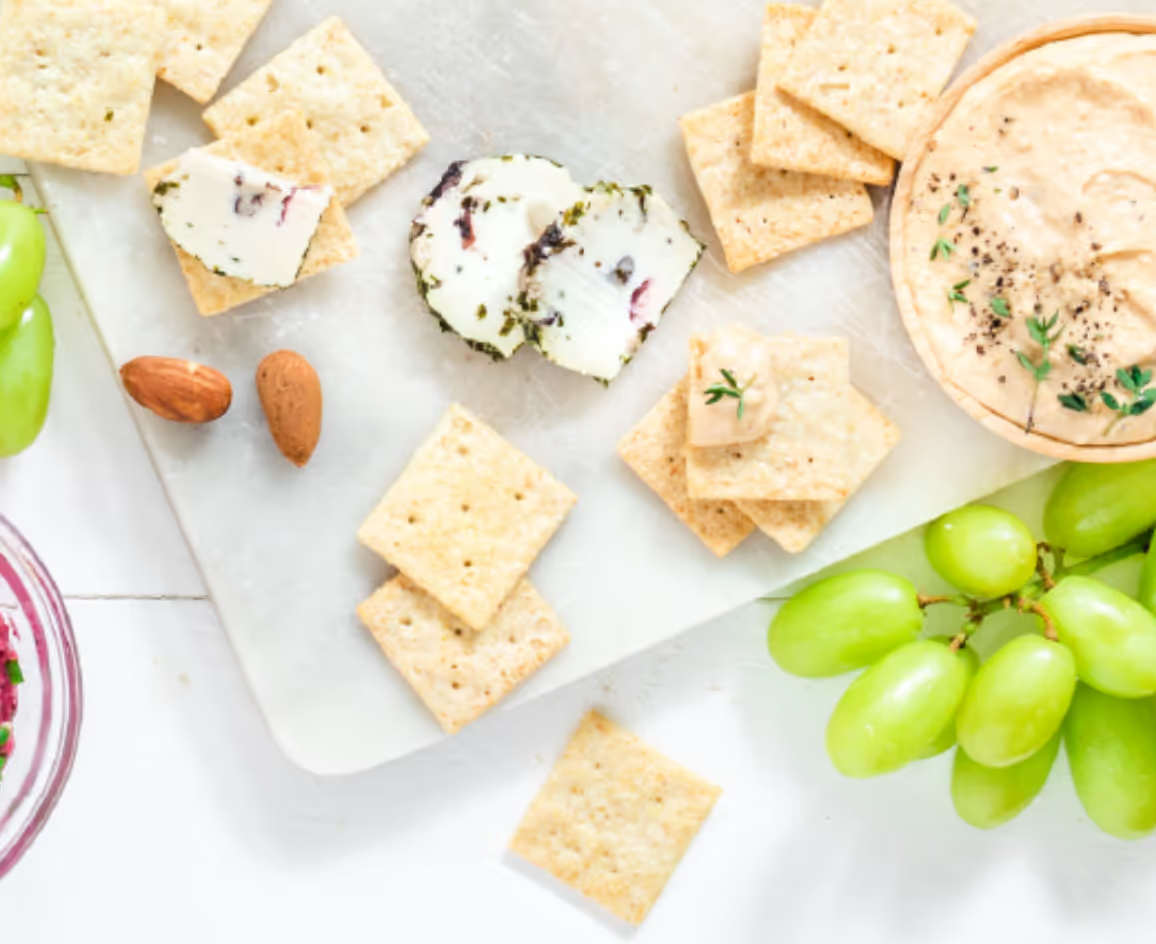Unpacking the Science of Sugar and Its Effects on the Brain
Learn more about sugar and its effects on the brain and what you can do about it.

A primary care membership for patients who want more. Primary Care. Nutrition. Wellness. All under one roof.
As Halloween and other sweet celebrations approach, the allure of treats becomes irresistible. Understanding how sugar impacts the brain and body can help you make better choices, allowing you to indulge mindfully. Here’s a comprehensive look at the effects of sugar on brain health, a comparison of natural sugars versus alternative sweeteners, and some recommendations for healthier candy options.
The Effects of Sugar on the Brain
Sugar’s appeal goes beyond its sweet taste—it triggers the brain’s reward system. When you consume sugar, it stimulates the release of dopamine, a neurotransmitter associated with pleasure and reward. This dopamine rush is why sugary treats can be so gratifying and why cravings can be difficult to resist.
Dopamine and Reward System: The brain’s reward system is designed to reinforce behaviors that are beneficial for survival, such as eating. Sugar activates this system, providing a significant pleasure response. However, frequent consumption can lead to a cycle where the brain requires more sugar to achieve the same level of satisfaction, similar to addictive behaviors.
Cognitive Function and Inflammation: Excessive sugar intake has been linked to neuroinflammation, which can impair cognitive function. This inflammation can contribute to memory issues and learning difficulties, and may even increase the risk of neurodegenerative diseases such as Alzheimer’s.
Mood Swings and Emotional Health: Rapid spikes and crashes in blood sugar levels can affect mood, leading to irritability and mood swings. These fluctuations disrupt the balance of neurotransmitters that regulate mood, potentially leading to emotional instability.
Natural Sugars vs. Alternative Sweeteners: Which to Choose?
When selecting sweeteners, it’s important to understand their impact on health. Here’s a comparison of natural sugars and alternative sweeteners, along with specific brand recommendations to guide your choices.
Natural Sugars
Natural sugars are often seen as healthier alternatives to refined sugar, but they still affect blood sugar levels.
- Honey: Known for its antioxidants and potential health benefits, honey remains high in sugar, with about 17 grams per tablespoon. Manuka Honey is a premium choice, valued for its higher antioxidant content and antibacterial properties.
- Maple Syrup: Made from maple tree sap, maple syrup contains minerals such as manganese and zinc. However, it’s still high in sugar, with around 13 grams per tablespoon. Opt for Grade A Organic Maple Syrup to avoid additives and processing.
- Coconut Sugar: This sugar has a lower glycemic index than regular sugar, which means it has a slower impact on blood glucose. It still contains about 15 grams of sugar per tablespoon.
Alternative Sweeteners
Alternative sweeteners offer options with lower calories and minimal impact on blood sugar levels.
- Stevia: Stevia, derived from the leaves of the stevia plant, has no calories and doesn’t affect blood glucose levels. Pure Via Stevia is a high-quality option that works well in both cooking and baking.
- Monk Fruit Sweetener: Monk fruit extract is low in calories and has a minimal effect on blood sugar. Lakanto Monk Fruit Sweetener is a popular choice that blends monk fruit with erythritol, providing a balanced, sweet taste.
- Erythritol: This sugar alcohol has almost zero calories and negligible effects on blood sugar levels. Swerve Sweetener combines erythritol with oligosaccharides to mimic sugar’s taste and texture, making it versatile for various recipes.
Healthier Candy Alternatives
Enjoying candy doesn’t have to mean compromising on health. Here are some options that offer a better nutritional profile:
- UnReal Candy: UnReal offers chocolate candies made with fair-trade cacao and no artificial ingredients. They use alternative sweeteners and are non-GMO, providing a more health-conscious option for candy lovers.
- SmartSweets: SmartSweets features gummy candies that are low in sugar and high in fiber. They use ingredients like tapioca syrup and natural flavors to reduce sugar content while still delivering a sweet treat.
- Lily’s: Lily’s is a great choice for those seeking lower-sugar chocolate options. Their products are sweetened with stevia and erythritol, providing a richer taste with less sugar.
- ChocZero: ChocZero offers a range of chocolate products sweetened with monk fruit, avoiding sugar alcohols. Their chocolate bars and keto-friendly treats provide rich flavor with lower sugar content.
- LÄRABAR: While not traditional candy, LÄRABARs offer a convenient and healthier sweet treat. Made with minimal ingredients such as dates and nuts, they provide natural sweetness along with protein and fiber.
Practical Tips for Healthier Indulgence
- Choose Quality Sweeteners: Opt for sugar alternatives to enjoy sweetness without significant impacts on blood sugar levels.
- Incorporate Balanced Ingredients: When making your own treats, use ingredients such as almond flour, coconut flour, and healthy fats to enhance nutritional value and reduce sugar’s effects.
- Be Mindful of Portions: Enjoy smaller portions of candy and focus on savoring each bite to avoid overindulging.
- Stay Hydrated: Drinking water throughout the day can help manage cravings and keep you hydrated. Herbal teas or sparkling water with a splash of citrus are great alternatives.
- Read Labels: Be vigilant about hidden sugars and artificial ingredients in processed candies. Look for products with transparent ingredient lists and minimal processing.
Tips for Parents
For a healthier Halloween, parents should be mindful of the types of candies their children consume and the associated risks. To minimize choking hazards, particularly for younger children, avoid hard candies like lollipops and jawbreakers. Opt for softer options such as chocolate, yogurt covered raisins, or fruit snacks. Pay attention to allergens and choose treats with lower sugar content and fewer artificial additives. Encourage a balanced approach by ensuring children have a nutritious meal before trick-or-treating, setting reasonable limits on candy intake, and avoiding using candy as a reward to foster a healthier relationship with food.
For a more well-rounded celebration, consider alternatives to traditional trick-or-treating. Host a Halloween party with fun activities and healthier snacks! Participate in community events or join a Halloween parade. Celebrate with non-food items like toys, seasonal clothes, books, or settle into a spooky movie night. By balancing mindful sweet consumption with festive activities, parents can help create a more relaxed and fun holiday.
Conclusion
As you prepare for the upcoming festivities, understanding the impact of sugar on your brain and body can help you make better choices. By opting for natural and alternative sweeteners and selecting healthier candy options, you can enjoy the season’s treats while supporting your overall health. Making informed choices allows you to indulge in a way that aligns with your well-being goals, ensuring that your celebrations are both enjoyable and health-conscious.

If you're curious to learn more about The Lanby, book a free consult call and we'll chat about how The Lanby can be your personalized long term health and wellness partner.

Kendall is a graduate of the University of Mississippi, with a B.A. in Integrated Marketing Communications and a minor in Business Administration. She received her certificate of Nutrition Science from the Friedman School of Nutrition at Tufts University.

Chloe holds a bioengineering degree from the University of Pennsylvania. As a breast cancer survivor, her insights shape The Lanby's patient-centric approach. Leveraging her healthcare strategy background, Chloe pioneers concierge medicine, bridging gaps in primary care.

Tandice was recognized with the Health Law Award and named a Ruth Bader Ginsburg Scholar at Columbia Law School. Tandice's editorial role is enriched by her insights into patient autonomy and gene modification legalities. Passionate about bioethics, she is committed to crafting patient-centric healthcare solutions.





